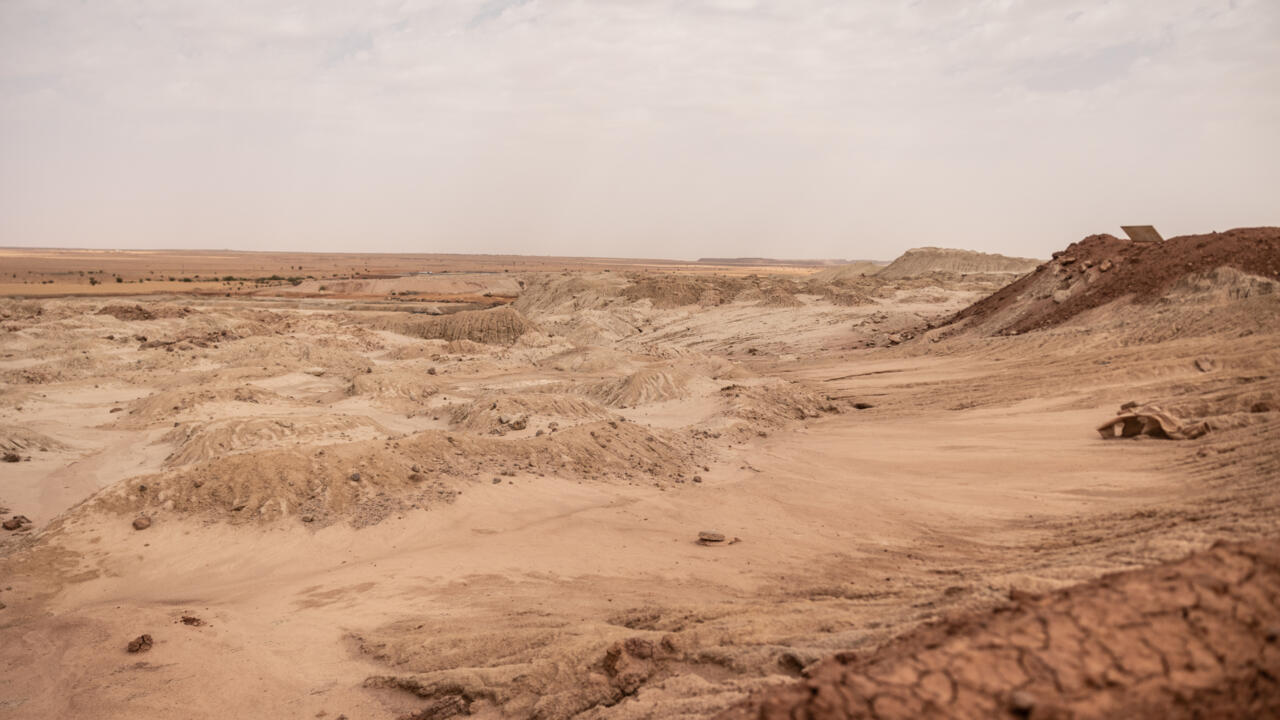Earlier this month, soldiers swooped by helicopter into a vast mining complex in western Mali and made away with three tonnes of gold – all done on the orders of the military government.
The confiscation at the Loulo-Gounkoto complex, majority owned by a Canadian firm, is one of the most extraordinary twists in a long-running confrontation waged by juntas in Africa’s volatile Sahel region against Western mining firms.
The militaries who took power in Mali, Burkina Faso and Niger in recent years have stepped up pressure on foreign firms – promising greater sovereignty and a fairer distribution of revenue from the lucrative mining sector.
After weeks of escalating tension with Canadian company Barrick Gold, Malian authorities carried out an order in mid-January to seize gold stocks at Loulo-Gounkoto –- one of the world’s largest gold complexes.
Barrick Gold owns 80 percent of Loulo-Gounkoto, with Mali retaining the rest.
The soldiers who arrived unannounced by helicopter “confiscated the phones of those who tried to film them”, one miner told AFP, asking for anonymity due to the sensitive subject.
The only images of the operation were shared covertly.
He said when resurfaced from the mine, colleagues showed him a photo of two helicopters about to carry the gold back to a bank in the capital Bamako.
The gold’s value is estimated between $260 and $290 million, according to market data and experts, an immense sum for one of the poorest countries in the world.
Authorities are demanding hundreds of millions of dollars in arrears from Barrick Gold and in November detained four of the company’s Malian employees.
In the same month, they arrested the CEO and two employees of Australian firm Resolute Mining, before releasing them after the company struck a $160 million deal with the government.
Other miners such as Canada’s Allied Gold, B2Gold and Robex have previously agreed to review the terms of their operations and pay to settle their tax and customs disputes.
Military leaders in the Sahel have vowed to claw back sovereignty over their natural resources, which they say have been unfairly sold off to foreign operators.
Gold mining provides a quarter of Mali’s national budget.
In Burkina Faso, it accounts for around 14 percent of national revenue, according to official figures.
The juntas, who have turned their backs on former colonial power France and regional bloc ECOWAS, must find a way to finance their long-running battle against jihadism and the multiple crises plaguing the region.
At the end of last year, Niger authorities took control of French nuclear group Orano’s uranium mining unit after withdrawing its licence.
Niger is the world’s seventh-largest producer of uranium, accounting for 4.7 percent of global supply.
In 2023, Burkina Faso’s junta said it had requisitioned 200 kilograms of gold extracted by a subsidiary of the Canadian group Endeavour Mining for “public necessity”.
Ahamadou Mohamed Maiga, who heads an extractive industries consultancy, hailed the move by the juntas to denounce “grossly unfair contracts”, which he said were conducive to tax evasion.
“What is more violent? Dealing with contracts that corner us or seizing a stock of gold because we want to force negotiations,” asked Oumar Baba Sy, a Malian mining engineer and consultant.
Since seizing power, the region’s military leaders have reformed their mining codes.
Mali has freed up more than 700 billion CFA francs (more than $1 billion) by negotiating new contracts or renegotiating old ones, economy minister Alousseni Sanou said at the end of December.
The reforms should generate “a net additional gain of around 600 billion CFA francs” ($950 million) a year, or 20 percent of the national budget, Sanou added.
Mali’s junta chief General Assimi Goita said in January that the new revenues had made it possible to pay off part of “the internal and external debt and to pay for military equipment”.
Nina Wilen, Africa director at the Egmont Institute for international relations, said the region’s new military rulers were playing to public opinion by adopting a rhetoric based on sovereignty and the rejection of most Western partners.
The risk is scaring off foreign investors, she added.
Mining engineer Sy played down the danger by pointing to other actors looking to expand their influence in the Sahel, such as China, Russia and Turkey.
The current pressure on foreign firms will have a short-term impact, he said, as “new private partners are arriving from everywhere” driven by the global demand for strategic minerals.
“Nobody has a monopoly,” he said.
“If you don’t want to invest in these countries, others will.”


